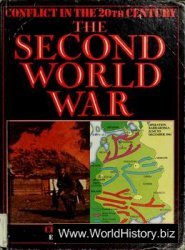The monarchy provided a potent rallying point for the diverse peoples of
the empire. Franz Joseph had been the ruler since 1848, and he stood as the
most senior monarch in Europe. He had presided over his country's affairs
as it lost most of its Italian possessions in the war of 1859 with Piedmont-
Savoy and France. He also had seen the Habsburg Empire lose its influence
in German affairs following its defeat in the Seven Weeks' War against
Prussia in 1866. The empire, which had been reconstituted repeatedly over
the centuries, now took its final shape in 1867 as the German leaders in
Vienna compromised with the Hungarians, who had been such dangerous
rebels, to create the new Dual Empire.
The monarchy, with Franz Joseph as emperor of Austria and king of
Hungary, was one of the institutions, along with the national army, that held
the system together. Rising at dawn and laboring on state business throughout
the day even as he grew aged, Franz Joseph was a model of crowned
industriousness. One scholar describes him in these decades as a monarch
whose "very being somewhat attenuated the asperities and animosities of
peoples in the multinational realm ... he embodied the common concern
for law and order." '2
Unlike in Russia, during the war there were no suggestions that the
monarch or members of his family were dangerously sympathetic toward
the enemy; nor were there charlatans with crucially important influence on
the order of Russia's Rasputin. Convinced that victory was unlikely, the old
monarch nonetheless played the same role—symbol of imperial unity—that
he had played since 1848. He claimed little influence in making policy, but
as Edward Crankshaw has put it, he was "the living symbol of the reality
of the Dual State." i- The death of Franz Joseph in 1916 brought his
attractive young great-nephew to the throne as Emperor Charles. The new
monarch's efforts to remove his country from the war soon became public
knowledge. They probably added to his popularity.




 World History
World History









